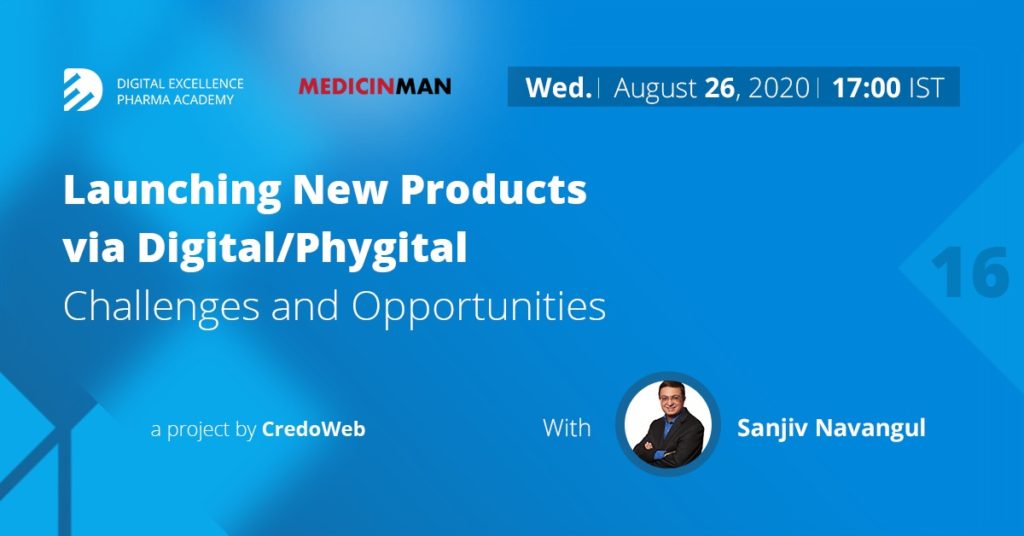This article is a sequel to Split Personality of Pharma Marketer.
The ones who were lucky to be correctly diagnosed and treated with DIGIMEDICINE are the future Pharma DIME’s to SHINE.
The new sparkling DIME (Digi MarketEr) are the ones who embrace digital transformation with open arms and voraciously feed on data analytics to satisfy their performance outcomes with an informed business decision. The benefit of being DIME is that it propels data management out of the hands of individual stakeholders, and puts data sets with insights on to center glass table (Transparent workplace) for informed decision making.
“Without data, you’re just another person with an opinion.”
A Pharma Digi-Marketer (DIME) sits at the intersection between technology, data, and business. Rather than having any official authority over people, he acts as a leader by guiding teams towards a shared end goal. He liaisons with the cross-functional teams, to set OKR’s (Objectives and Key Result) and KPIs (Key Performance Indicators), he owns the roadmap, and manage stakeholder relationships, amongst many other tasks. To do this well and ensure the success of a product, he is required to be data-driven. Digi-Marketer (DIME) and the title is self-proclaimed rather than their official job role.
It’s more than just being data-driven, it’s actively building ways to collect and manage data, and using it to build and perfect your business objectives.

Being A Pharma Digi-Marketer (DIME)
Essentially, DIME is one who doesn’t just rely on their instincts, but someone who arms themselves with as many facts as possible.
Now that you’re a DIME, you might be on the lookout for some quick wins! But being dedicated to data doesn’t work like that. It’s more about playing the long game. Investing your time in data is exactly that…an investment.
You need to build product analytics into everything you do right from the start. Being data-driven won’t make you an overnight success. It’s a long-term practice that influences your product decisions and leads you to long term success.
The key is building up your skillset as much as possible.
Here are the top five things that data can empower to become DIME to be.
1. Understand your customers
To be a good DIME you need to know what your customers want and which problems, and preferences they have. To figure this out, you first define the customer profiles.
Putting together the profiles is hard enough. But you need to understand them as well. This is where you need data knowledge. Your customers’ behavior affects your decision-making, as customer profiles allow you to make good decisions based on user experiences and desires. You can profile the customers based on commercial, social, or knowledge aspect and can further dissect into finer subgroups.
Feedback helps you find out what that group of customers think about your product. Product data provides a larger scale of answers to who exactly your customers are, why they use your product for, and what they think about it.
2. Make better decisions
As you work on refining your product, a steady stream of data will help you make decisions based on facts, rather than on instinct. A problem well defined is a problem half-solved
“You can have data without information but you cannot have information without Data”
3. Help you build future business
Teams work cross-functionally, so knowing data and being able to talk about it with your Business Development and Data Analyst is a great advantage. It’s like learning their language. You’ll be able to understand them and better communicate your questions and ideas to them. Some people are naturally more data-centric than others. If you understand and can talk about data, your collaboration with them will be stronger
4. Optimize Your Time
Knowing data will help optimize your time by differentiating urgent things from non-urgent things. This will require trade-offs. You’ll have to be aware that if you work on one specific thing now, it might affect another thing negatively somewhere else.
Every time you choose to work on something, it also means not working on something else. Make sure you choose the right one.
5. Manage Stakeholders and Align Product Teams
When it comes to influencing team members and getting them aligned on one product vision, data is key. Data helps you to back up your opinions because, after all, data doesn’t lie.
Not only will this help with team members, but with stakeholders. If you need to convince someone important show them the numbers that prove it. Data will also help you give useful updates for more data-driven stakeholders who want more details.
Numbers are a universal language, and there’s no easier way to communicate with stakeholders than by using numbers. As mentioned before, without data you’re just a person with another opinion, and in a stakeholder meeting, there might be a lot of different opinions. If you can use numbers to back up your position, you’ll have more authority. When a stakeholder requests a feature, you can use objective facts to prove why it won’t work, etc
While data can be interpreted in a few different ways, it can sometimes supply you with objective truth.
- Data is an integral part of Pharma Marketer, but some use it more than others.
- All successful products are driven by data.
- The most successful products are the ones using massive amounts of data in new and innovative ways.
- Make data more exciting by thinking about the possibilities, not the theory.
- Use the right Data Management and Analytical Tools to increase productivity and give all team members access to all data.
Your ability to understand, manage, and take away actionable insights from data will greatly impact your ability to progress in your career.
So now you’re all fired up and ready to start understanding data, that’s great!
Stories about humble beginnings should also become legendary in Pharma. A couple of geniuses, a garage, and an ambitious vision: all it takes to kick-start a digital revolution.
Common Handy Tools to Kick Start

Road Mapping: While PMs are known for being adaptable, plotting the path brings to light the kind of stakeholder negotiation skills and data-led planning that make Product Management so effective. Both Roadmunk and Monday lean on the “making things easy side”. AHA is also useful and based on sound theoretical insights into how product managers work. ProductPlan is also good for those who prefer it lighter: it is web-based.

Prioritizing & Task Management: A Product Manager must have a positive and a negative vision. That is, they need to know when to drop something that does not work. This is a very valuable skill: if you work by yourself, you will save time and money. Suggested tools include Trello, Airfocus, Craft, Hygger, GridRank, and Productific.

Data Management: A Product Manager is nothing without data. Your intuition could even be based on decades of experience; but, without accurate analytics, you are going nowhere. You need tools to gather information about your products.
SurveyMonkey, Google Forms, Survey Anyplace, and Typeform are useful to ask customers straight away. Finally, MailChimp and Customer.io offer powerful tools to contact your clients over email.
Google Analytics is a free and basic tool to track your online metrics, but if you want to go into more detail, Try Mixpanel, where you can track user interactions and even run A/B tests. Also, Salesforce offers powerful CRM tools to the adept user.
To learn more from industry experts, join Digital Pharma Excellence Academy – an initiative by MedicinMan in partnership with CredoWeb for Indian pharma/device/diagnostics and disposable industry professionals and learn from the 40+ series of webinars on various aspect of pharma sales and marketing.

Go to www.credoweb.in
Create your “Pharma professional” registration
Follow Digital Excellence Pharma Academy page and stay tuned for the invitation.


